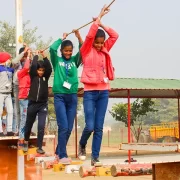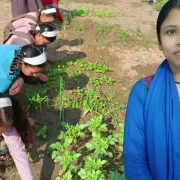Education
Humana People to People India is contributing towards a more inclusive education system with equitable access to opportunities for all. We support the efforts to make education purposeful for learners. We do so through:
- Developing and implementing teacher education and school education programmes.
- Building knowledge and understanding and developing the agency in learners to address 21st-century challenges.
- Develop operational models that support education as a common good and work closely with State Governments.
- Therefore integrating and implementing the programmes with governmental institutions.
Necessary Teacher Training Programme (NeTT)

Our two-year Necessary Teacher Training (NeTT) programme is implemented through an innovative pedagogical framework called the Doctrine of the Modern Method (DMM). The programme provides an essential balance between theory and practice, blending seamlessly with the state curriculum frameworks for teacher education. Teacher is a catalyst to bring change in the society via education. Therefore, teacher education becomes the factor of utmost importance in education.
NeTT is an elementary school teacher-training programme adopted and implemented by State Governments. It offers course to transact with the two-year Diploma in Elementary Education (D.El.Ed.) with District Institute of Education and Training (DIET). NeTT programme was started in the year 2009. Until now, 16,589 teachers have graduated with this programme from 31 DIETs in six states. Currently, the programme is implemented in 15 DIETs across five States.
HPPI collaborated with the Department of School Education Haryana in 2012 to establishment and initial operation of Prarambh, a four-year integrated Bachelor of Science/Art with a Bachelor of Education.
Kadam Initiatives
The Kadam programme has been implemented successfully in different States through Special Training Centres for out-of-school children and government primary schools. The programme aims to build educational prowess and work on the holistic development of children at the primary school level. The programme blends formal learning with real-life experiences. It works towards enabling out-of-school children to acquire foundational learning skills for their age-appropriate integration in schools. When children reach the age-appropriate level through the programme, they are enrolled in formal schools and follow up for six months to ensure retention.
We started working with out-of-school and working children in the year 2005, with small informal education centers established in community spaces, terraces, in front of temples, etc. Over the years, these small centers evolved into the Kadam movement. Until now, the programme has been implemented in 11 states across the country. Presently the Kadam programme is implemented in Haryana, Uttar Pradesh and Maharashtra.
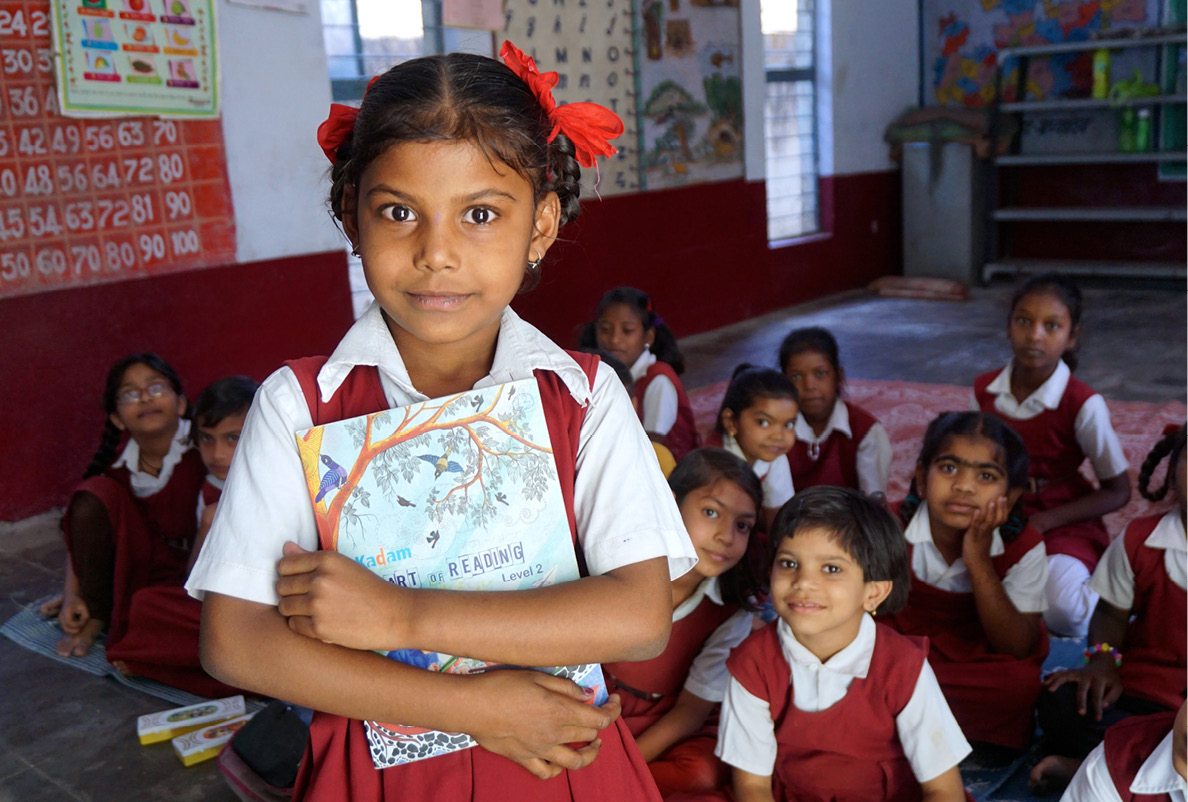
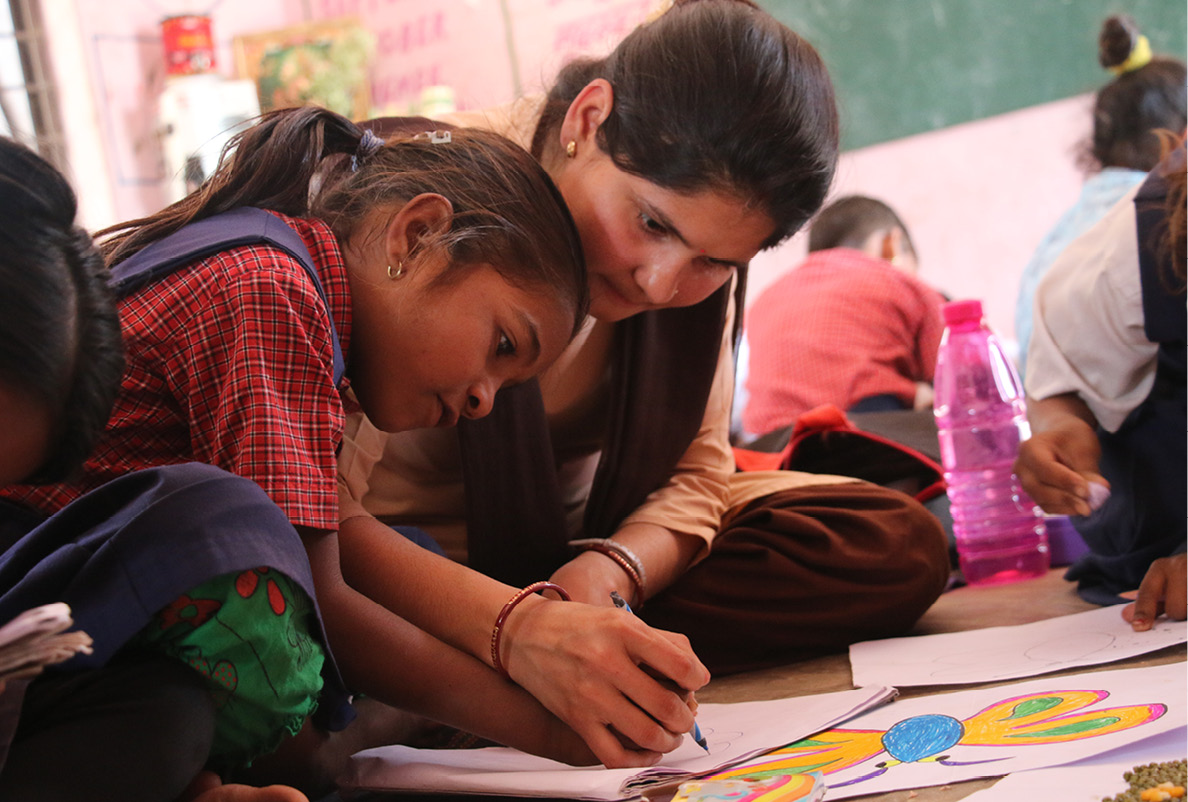
The Kadam programme also helps children-in-primary schools to bridge the learning gaps so that they remain in the schools and do not drop out of the education system. This model has a two-pronged approach: 1) As a learning system (Kadam) that provides the students with clear instructions and goals on what and how they need to learn it; 2) As a hands-on teacher training toolkit to be used in schools and classrooms that enables teachers to put theory into practice. Until the end of March 2023, the Kadam programme has reached 326,317 children – hereof 189,021 out-of-school children and 137,296 in-school children. Over the years, 13,845 teachers have engaged in the Kadam programmes.
Sambhavana
Sambhavana is an innovative programme designed to address the learning gaps for out-of-school children and children facing learning difficulties in schools . The programme help in bridging the learning gap for children above 12 years of age and at upper primary (middle school) level. Sambhavana takes them through the upper primary school grade levels in approximately two years’ time. If the children need to consolidate their academic foundations (relative to grades 1 to 5), they are placed in the Kadam Foundation Programme for a maximum time limit of one year.
Sambhavana seeks to equip children with a robust academic base to support them in completing secondary education through formal/ non-formal schooling, or joining vocational skills training programmes, and finding meaningful employment or any other form of engagement.
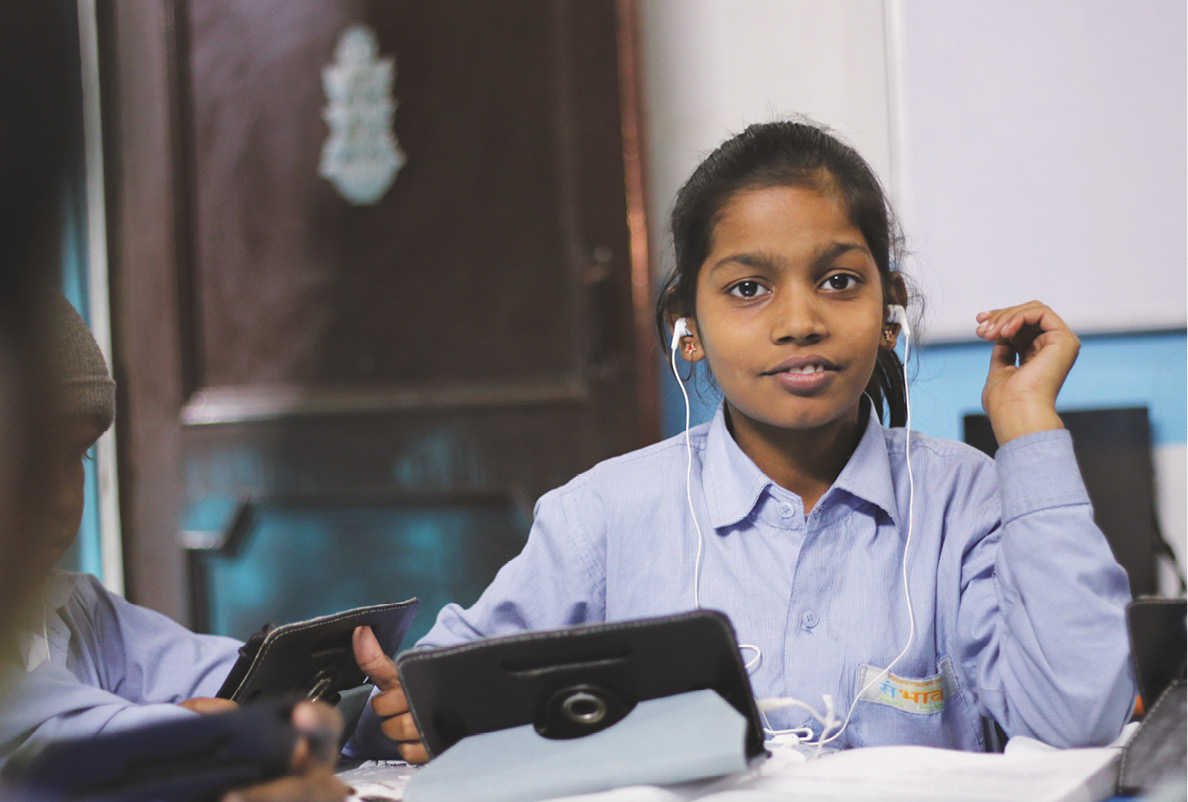
Samarth Education programme for girls
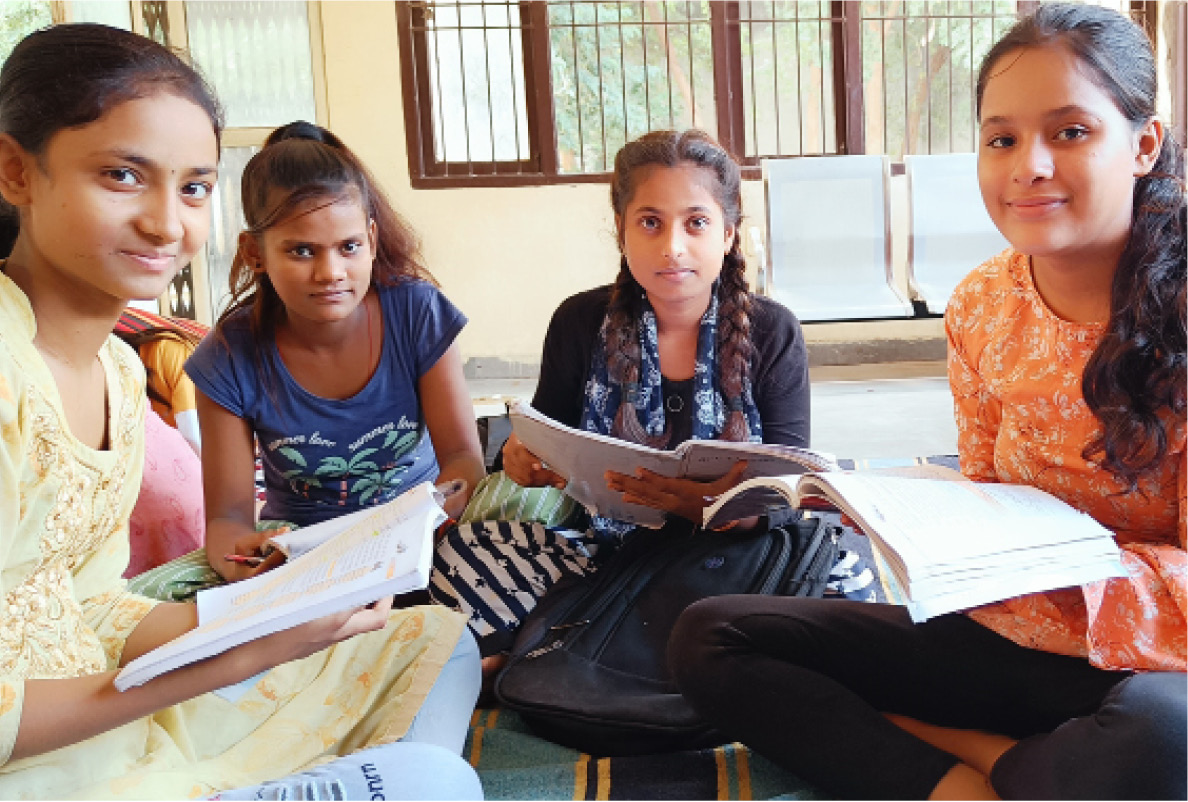
Based on the educational platform of the Sambhavana programme, the Samarth Education programme for girls is a tailor-made, remedial education and life skill development programme. The programme aims to help adolescent girls at the upper primary and secondary school levels to bridge the learning gaps and bring them to age-appropriate levels. It also intends to make a positive impact on gender equality. The programme is designed in a way that it can provide tutoring to the girls during post-school hours. It also includes providing a sound, foundational learning base; covering the missed-out concepts in school subject areas relative to their respective grades; updates on physical and emotional health in adolescent years; life skills knowledge and overall personal development.
Preschools of the Future (PoF)
Preschools of the Future addresses the learning need for children between three to six years and make them school ready. This is a theme based programme that integrates age appropriate skills and concepts designed to stimulate the development of small children. These elements allow the children to use their minds and body to connect with the world around them. The programme help them learn from their immediate environment, and provide holistic development. The programme is aligned with NCERT Pre-school curriculum, recommendation of NEP 2020 and ECCE Curriculum framework of 2013 of WCD as well as the Integrated Child Development Scheme (ICDS) Manual 2017.
According to local needs and opportunities, the programme is adjusted for different age groups of children and can be implemented
– within Anganwari and similar Early Childhood Care and Education (ECCE) facilities engaging community
– within pre-primary facilities of government primary schools
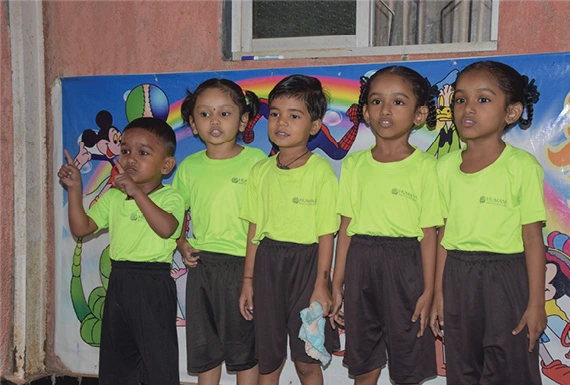
Centres of Active Schooling
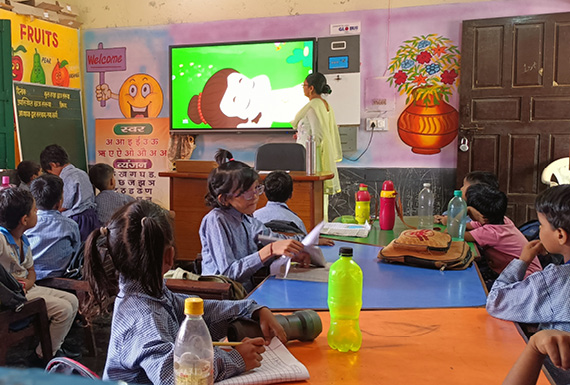
Centers of Active Schooling is an educational programme that helps the existing schools transform into progressive schools by adopting a change in their curriculum and teaching methods. The programme’s unique feature is introduction of English language from early grades. The programme’s subject areas include Mathematics, Hindi and English; Environmental Science begins from grade 3. Each grade has included hands-on experiences with thematic learning activities. Special emphasis is given to the story time in these classes. Yoga and play, too, are well ingrained in the curriculum. All subjects are in alignment with the curriculum of the intervention State. As of today 418, schools in the state of Haryana are included in the programme. Haryana plans to add 1,000 more schools in the programme beginning the academic year 2022.

